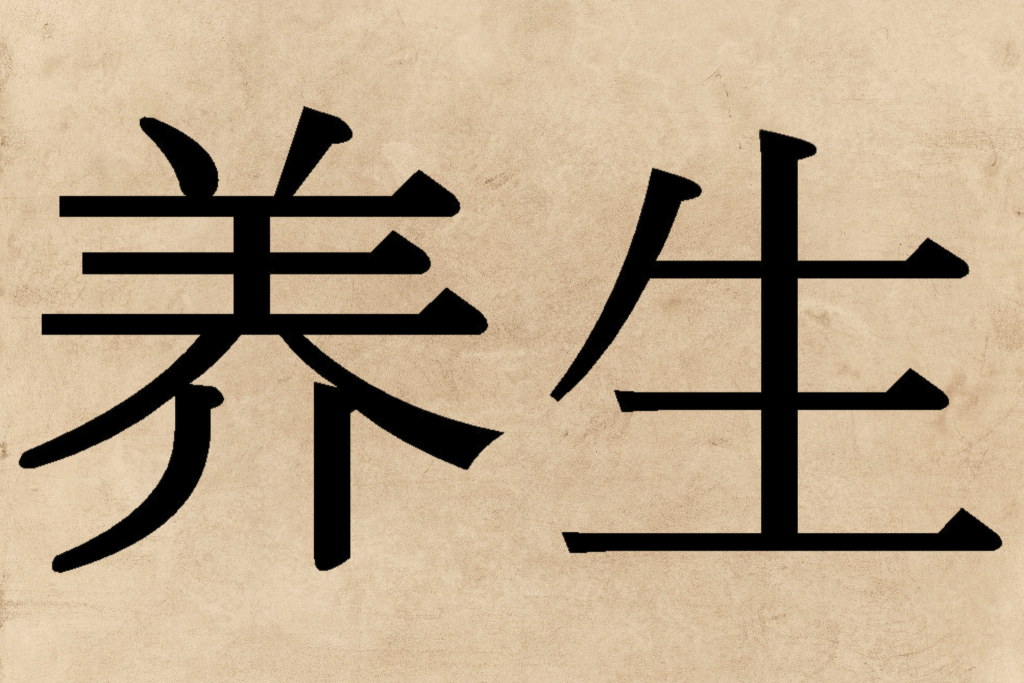
“Three parts medicine, seven parts nurturing health. Skill in treating is not as good as skill in nurturing health.”
~~ Chinese saying
The practice of “YANG SHENG” is the foundation of the comprehensive system of Chinese Medicine that has been continuously practiced for over 2500 years. “Yang” means to nurture, while “Sheng” relates to life and vitality, and this phrase is commonly translated as “NOURISHING LIFE”. The art of nourishing life has roots that extend deep and wide, from a range of spiritual, cultural and medical traditions, including Daoism, Buddhism, Confucianism, classical medicine, the martial arts and folk knowledge.
Do not take good health as granted. Just as one should not forget danger in times of peace, try to prevent the coming of disease beforehand.
~~ Sun Simiao, 7th century CE
The concept of Yang Sheng is taught as a health discipline in Chinese Medicine schools and encourages a life-long practice of fostering health and longevity by nurturing the body, mind and spirit in harmony with the rhythms of the natural world. The components of a healthy life are interrelated, and include moving and exercising the body, regulating the emotions, being mindful of the diet, adapting to the climate, and cultivating the spirit. Nourishing Life is more than the “right food” and the “right exercise routine”; instead it is a theme, a blueprint for best practices that support an engaged life. It is a gentle reminder that we are intricately connected not only to the environment in which we live, but to the people who surround us in that environment, and cultivating all those relationships, especially with our own selves, is the key to a healthy life well lived. This concept is not specific to Chinese culture.
When Dan Buettner, the award winning journalist, author and National Geographic Fellow, got curious about why certain cultures were living long lives without the specter of chronic disease, he set out on a mission to research those areas, and published his findings in a book called THE BLUE ZONES.
Blue Zones are demographically-confirmed, geographically-defined areas with the highest percentage of centenarians, or people who live to 100 years old. They are Loma Linda, California; Ikaria, Greece; Nicoya, Costa Rica; Sardinia, Italy; and Okinawa, Japan.
What all these diverse populations had in common was very much in alignment with the concept of Yang Sheng:
- Move Naturally: Instead of pumping iron and running marathons, the inhabitants grow and tend gardens, and spend time in nature, walking, hiking and gently exercising.
- Sense of Purpose: Having a sense of purpose is worth up to seven years of extra life expectancy. The Okinawans call it “Ikigai” and the Nicoyans call it “plan de vida;” for both it translates to “why I wake up in the morning.”
- Downshift: Stress leads to chronic inflammation, associated with every major age-related disease. While people in Blue Zones areas experience stress, they have daily routines to shed that stress. Reverse disease by creating a stress-relieving strategy that works for you. Okinawans take a few moments each day to remember their ancestors, Ikarians take a nap, and Sardinians do happy hour.
- 80% Rule: Eat mindfully and stop when 80% full. The 20 percent gap between not being hungry and feeling full could be the difference between losing or gaining weight. People in Blue Zones eat their smallest meal in the late afternoon or early evening and then don’t eat any more the rest of the day.
- Plant Slant: Adding more fruits and veggies to your plate can add years to your life. Beans, including fava, black, soy, and lentils, are the cornerstone of most centenarian diets. Meat—mostly pork—is eaten on average only five times per month. Serving sizes are 3-4 oz., about the size of a deck of cards.
- Belong: All but five of the 263 centenarians interviewed belonged to some faith-based community. Denomination doesn’t seem to matter. Research shows that attending faith-based services four times per month will add four to 14 years of life expectancy.
- Loved Ones First: Successful centenarians in Blue Zones areas put their families first. This means keeping aging parents and grandparents nearby or in the home, which lowers disease and mortality rates of children in the home. They commit to a life partner (which can add up to 3 years of life expectancy) and invest in their children with time and love.
- Right Tribe: The world’s longest-lived people also choose—or are born into—social circles that support healthy behaviors. Research shows that smoking, obesity, happiness, and even loneliness is contagious. The social networks of long-lived people favorably shape their health behaviors.
In all cases of what we currently think about as “health and wellness” there are experts out there telling us what to eat, how to exercise, which supplements are most beneficial. While all of these points are generally valid, there is truly no “one size fits all” and the messaging never really includes the components of the mind-body-spirit relationship. Take a moment to reflect on your own health journey, or that of your loved ones, and with a gentle approach, begin to see the roots of disharmony that could have stress, lack of sleep, unbalanced eating habits, and lack of movement as contributing factors.
As a general principle for nurturing life, nothing is preferable to knowing the root cause.
If the root cause is known, sickness will never arise.
~~ the Annals of Lu Buwei, 3rd century BCE
At Touchstone Acupuncture, we are committed to promoting Yang Sheng and helping our patients make small changes to their routines, to build the foundation of nourishing life and promoting health. Instead of a “to-do” list that requires checking all the boxes, consider Yang Sheng as a new set of tools and concepts to be practiced on a regular basis to support longevity. We are always here to cheer you on, to encourage you, and gently guide you through your journey and will continue to add more tools and options to your treasure chest of support for body, mind and spirit health and healing.
The following practices make up the Chinese nourishment of Life Tradition, according to Peter Deadman, renowned author, teacher and practitioner of Chinese Medicine. Which ones are you already practicing and which ones might need a bit of refinement?
** CULTIVATE THE MIND & EMOTIONS
** REGULATE DIET BY PAYING ATTENTION TO HOW, WHEN & WHAT WE EAT & DRINK
** Cultivate the body by balancing rest with the right kind of activity and exercise
** Sleep well & sufficiently
** Have a healthy & rewarding sex life
** Enjoying nature, music, dance & art
** Paying special attention to lifestyle during pregnancy & after childbirth
** Caring for children wisely
** Managing the aging process as well as possible

YANG SHENG: The practice of “YANG SHENG” is the foundation of the comprehensive system of Chinese Medicine that has been continuously practiced for over 2500 years. “Yang” means to nurture, while “Sheng” relates to life and vitality, and this phrase is commonly translated as “NOURISHING LIFE”.




